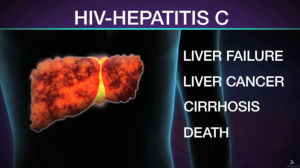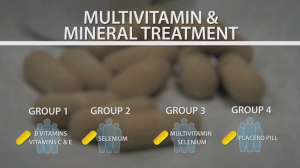NEW YORK (Reuters Health) — Chronically HIV-infected individuals show brain damage even when the disease is otherwise stable because of highly active antiretroviral therapy (HAART), according to a recent study by U.S. researchers.
“The findings show that cognitive impairment is present in almost 50% of subjects,” Dr. Bradford Navia of Tufts University School of Medicine, Boston, told Reuters Health by e-mail. “Brain inflammation is ubiquitous in all subjects, including those who are neurologically asymptomatic, while neuronal injury is evident only in subjects with cognitive impairment.”
The results of this prospective, multicenter, longitudinal, observational cohort study were published online on February 3 by the journal AIDS.
The study, Navia explained, is the first to show, using an in vivo imaging technique (magnetic resonance spectroscopy), “that cellular injury persists in chronically infected AIDS patients on HAART or cART [combination antiretroviral therapy] who have recovered from their disease in response to antiretroviral therapies.”
The report pointed out that the study cohort is different from those in previous studies, by reason of its size (240), age (40% of patients were older than 50) and duration of infection (60% had been infected for more than 10 years and nearly 10% for more than 20 years).
HAART’s effects have remained uncertain, the authors noted, which is especially problematic given that increased survival in the HAART era has also led to an aging patient population
All participants in the study (median age 47 years) had been on a stable FDA-approved antiretroviral regimen for at least 12 consecutive weeks. The median duration of HIV infection was 12 years.
The median nadir CD4 count was 34 cells/µl, and the median baseline count was 309 cells/µl.
Along with the 240 HIV-positive patients, the study included 28 HIV-negative controls.
Based on clinical and neuropsychological assessments, the HIV-positive cohort was divided into three groups, showing no cognitive impairment, subclinical impairment only or mild-to-severe impairment.
In three brain regions (basal ganglia, frontal white matter and mid-frontal cortex), the researchers measured ratios of four metabolites over creatine: N-acetyl aspartate, a marker of neuronal integrity; choline and myoinositol, markers of inflammation; and glutamate and glutamine.
“Prominent increases” in the inflammation markers were seen in all HIV-positive groups, including the neurologically asymptomatic participants, as compared with the HIV-negative controls. A significant decrease in N-acetyl aspartate over creatine was seen only in patients with AIDS dementia complex (mild or worse cognitive impairment).
“Together these findings indicate that despite the widespread use of HAART, HIV-associated cognitive impairment and brain injury persist in the setting of chronic and stable disease,” the authors wrote.
The study’s finding of a ubiquitous inflammatory response, the report noted, “continues to support prevailing models of HIV neuropathogenesis, suggesting that chronic inflammation, possibly as a result of chronic immune activation, plays a critical role in HIV-associated brain injury.”
“Given these findings, it is important that for patients on cART, physicians carefully monitor their neurocognitive status,” Navia said. “For HIV patients newly diagnosed, they should consider initiating treatment with cART early (CD4 greater than 300 cells/µL), rather than later, when CD4 drops to below 200 cells/µL.”
“[D]elaying antiretroviral therapy to the later stages of infection and immune suppression could result in irreversible brain damage,” he warned.
Reference:
Persistence of HIV-associated cognitive impairment, inflammation, and neuronal injury in era of highly active antiretroviral treatment
AIDS 2011, 25




